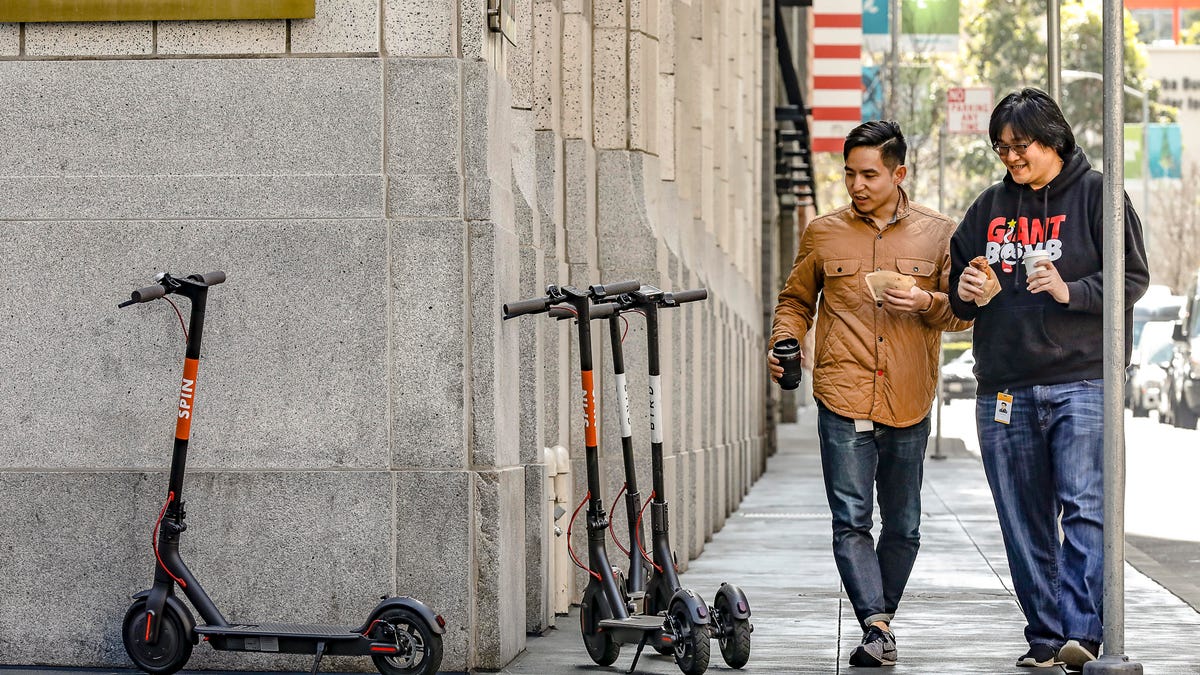Bird scooters CEO: 'Where there's no laws, that's where we go in'
The electric scooter company has a road map for launching in new cities.

Bird launched its electric scooters in San Francisco in March but has since been banned from the city.
Bird's electric scooters are now in 100 cities and that number is growing. But some places, like New York, won't see the scooters anytime soon.
Travis VanderZanden, Bird's CEO, explained Tuesday how the company decides where to launch its dockless, rentable scooters: It depends on the local laws. If there are already laws on the books banning the motorized vehicles, Bird doesn't go there. But if the laws are vague, then it's a go.
"We don't go to New York because it's technically illegal to use a scooter at the state level," VanderZanden said Tuesday at the Vanity Fair New Establishment Summit in Los Angeles. "Where there's no laws, that's where we go in."
Bird is the first company to launch rentable electric scooters in the US. It's also the fastest growing Silicon Valley company in history. In about one year, it's raised $415 million in venture capital funding, giving it a valuation of $2 billion. VanderZanden said 2.1 million people have tried out its scooters.
Santa Monica, California, was the first city in the US to get Bird's scooters. The company first flooded the oceanside town with its vehicles in September 2017 -- without warning to local officials or residents. Santa Monica didn't have laws governing electric scooters at that time.
Within days of Bird's launch, people were cruising down the beach boardwalk and in shopping zones. But at the same time, these new scooter riders were angering locals by cutting off pedestrians and parking the vehicles wherever they felt like it, blocking sidewalks, storefronts and wheelchair ramps.
The same scenario has now happened in cities across the country. Most of the time, Bird doesn't forewarn officials that it's about to drop hundreds of scooters onto streets. VanderZanden said that's by design. The company's MO is to reach out to city regulators at the same time it launches the scooters.
"Usually it happens at about the same time," VanderZanden said. "If you wait to talk to the city, sometimes it can take too long."
For the most part, this method has worked for the company. Santa Monica now has a law governing scooters and has granted Bird a permit to operate in the city. But in some cities, Bird's technique has backfired. In San Francisco, for example, regulators forced Bird to remove its scooters from the streets and then refused to give it an operating permit.
For VanderZanden, however, situations like that come with the territory.
"Any time there's something new, there's always some tough conversations," he said.
The Honeymoon is Over: Everything you need to know about why tech is under Washington's microscope.
Infowars and Silicon Valley: Everything you need to know about the tech industry's free speech debate.

